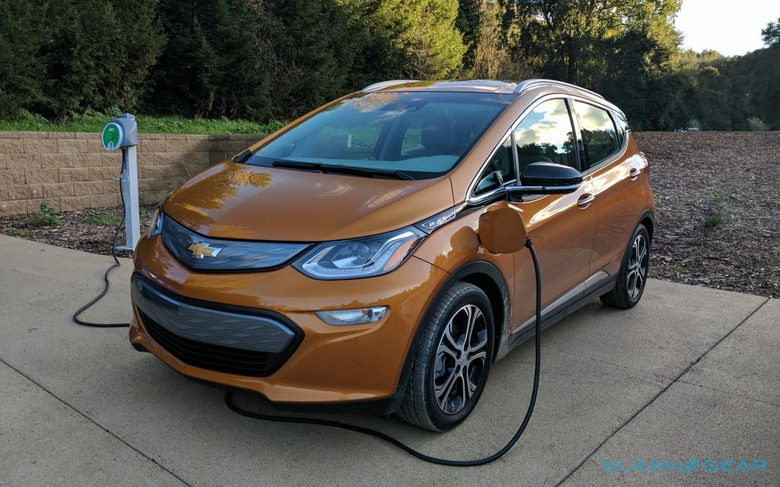Chevrolet Bolt EV Recall Warns Of Fire Risk For Electric Cars
Chevrolet is recalling more than 68,000 electric cars, after discovering that some versions of the Bolt EV could potentially catch on fire. The recall covers select 2017-2019 model year Bolt EV all-electric hatchbacks, the high voltage batteries of which could post a fire risk – a situation which has already prompted an NHTSA investigation in the US.
General Motors is blaming high voltage batteries produced by supplier LG Chem at its Ochang, Korea facility. All 2017 and 2018 model year Bolt EV cars used batteries from that facility; only some 2019 model year cars did. The 2020 Bolt EV "uses a different cell design than the vehicles affected by this recall," Chevrolet says.
It's unclear what, exactly, the battery issue is. Chevrolet says that the problem – which has apparently resulted in several verified incidents – occurs when the battery is either fully charged or charged to a high level.
As such, for the moment, Chevrolet's workaround is to limit the maximum charge that the Bolt EV will reach. That involves capping the car to 90-percent total charge capacity, which the automaker says should reduce the risk of fire.

If you have a 2017 or 2018 model year Bolt EV, you should go into the vehicle charge settings and switch the car to Hill Top Reserve mode. That automatically stops the charging at under 90-percent of the total capacity.
Those with a 2019 model year Bolt EV should use the vehicle charge settings to change the Target Charge Level amount. That can be set to 90-percent specifically.
GM has also developed a new software package for the EV, which will limit charge capacity to 90-percent without requiring those settings being enabled. That's something dealerships will need to install, and from the sound of it they'll have the new battery software from November 17.
"Our engineers are working around the clock to identify a permanent fix and we intend to deploy a final remedy to remove the 90% limitation as quickly as possible after the first of the year, 2021," Chevrolet says. Those who cannot make the changes are advised not to park their Bolt EV in a garage or carport.
The US National Highway Traffic Safety Administration opened its investigation last month, having received several reports of fires from owners. GM is cooperating with the agency, the automaker says, and had already been investigating the reports itself before the NHTSA announced its formal proceedings.
